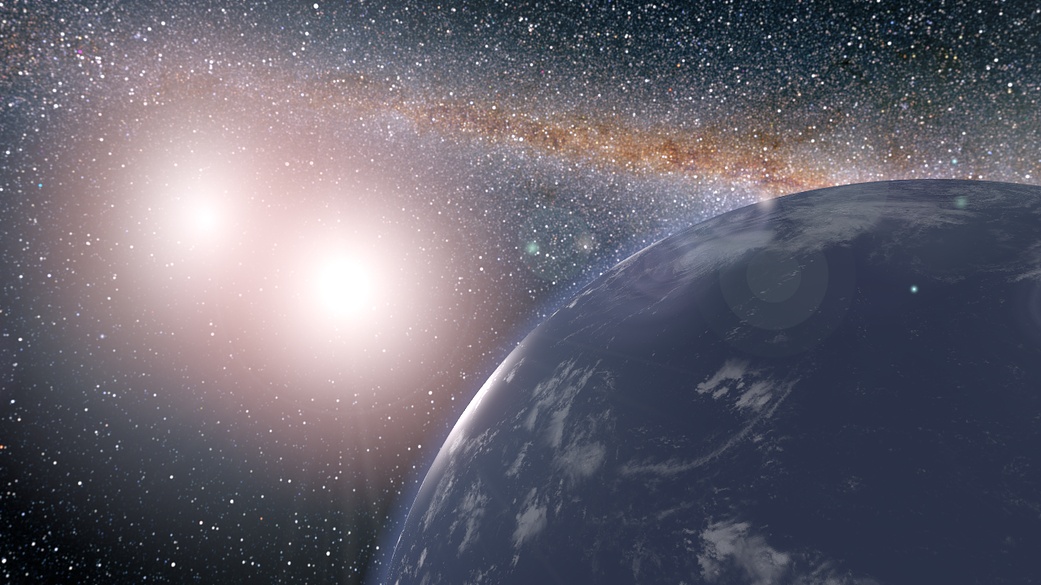Venus and Jupiter shine together over Rome (photo)
The ancient city had temples dedicated to the pagan gods associated with these planets.

Breaking space news, the latest updates on rocket launches, skywatching events and more!
You are now subscribed
Your newsletter sign-up was successful
Want to add more newsletters?

Delivered daily
Daily Newsletter
Breaking space news, the latest updates on rocket launches, skywatching events and more!

Once a month
Watch This Space
Sign up to our monthly entertainment newsletter to keep up with all our coverage of the latest sci-fi and space movies, tv shows, games and books.

Once a week
Night Sky This Week
Discover this week's must-see night sky events, moon phases, and stunning astrophotos. Sign up for our skywatching newsletter and explore the universe with us!

Twice a month
Strange New Words
Space.com's Sci-Fi Reader's Club. Read a sci-fi short story every month and join a virtual community of fellow science fiction fans!
A new image captures two planets with ancient significance meeting up over the famous old city of Rome on Sunday (May 1).
Venus and Jupiter shone together between the clouds in the image taken by Gianluca Masi, who runs astronomical livestreams for the Virtual Telescope Project.
He spotted the duo in the morning sky during a conjunction, or close approach in the sky. Conjunctions occur from time to time, because the eight official planets all orbit in the ecliptic, the plane of our solar system.
"Thin clouds made possible to see a wonderful colored corona around Venus, due
to diffraction of its light by individual small water droplets," Masi said in an email. He also spotted some Jovian moons, with Europa, Ganymede and Callisto all visible around Jupiter, he said.
Related: The brightest planets in the night sky: How to see them (and when)
If you take a photograph of Saturn, Mercury and the moon let us know! You can send images and comments in to spacephotos@space.com.
There are records of ancient Romans worshipping both Venus and Jupiter, according to Britannica. Imperial Rome ran between roughly 31 BCE to 476 CE, with a period of republicanism for five centuries before.
Capitoline Jupiter, atop Capitoline Hill, was the oldest known temple of the chief pagan deity, Britannica wrote. "Here there was a tradition of his sacred tree, the oak," the encyclopedia stated. "Here, too, were kept the lapides silices — pebbles or flint stones — which were used in symbolic ceremonies by the fetiales, the Roman priests who officially declared war or made treaties on behalf of the Roman state."
Breaking space news, the latest updates on rocket launches, skywatching events and more!
Venus was identified with the goddess Aphrodite sometime during the republican era, especially via the famous cult (religious branch) of Venus Erycina imported from nearby Sicily, Britannica said.
A temple was dedicated to the goddess in Rome in 215 BCE, during the Second Punic War that eventually saw the defeat of the iconic Carthaginian general Hannibal. Publius Cornelius Scipio — the general leading the Romans at the Battle of Zama in 202 BC — received the moniker "Scipio Africanus" following his victory.
If you're looking for binoculars or a telescope to see planets in the night sky, check our our guide for the best binoculars deals and the best telescope deals now. If you need equipment, consider our best cameras for astrophotography and best lenses for astrophotography to prepare for the next planet sight.
Follow Elizabeth Howell on Twitter @howellspace. Follow us on Twitter @Spacedotcom or Facebook.

Elizabeth Howell (she/her), Ph.D., was a staff writer in the spaceflight channel between 2022 and 2024 specializing in Canadian space news. She was contributing writer for Space.com for 10 years from 2012 to 2024. Elizabeth's reporting includes multiple exclusives with the White House, leading world coverage about a lost-and-found space tomato on the International Space Station, witnessing five human spaceflight launches on two continents, flying parabolic, working inside a spacesuit, and participating in a simulated Mars mission. Her latest book, "Why Am I Taller?" (ECW Press, 2022) is co-written with astronaut Dave Williams.
